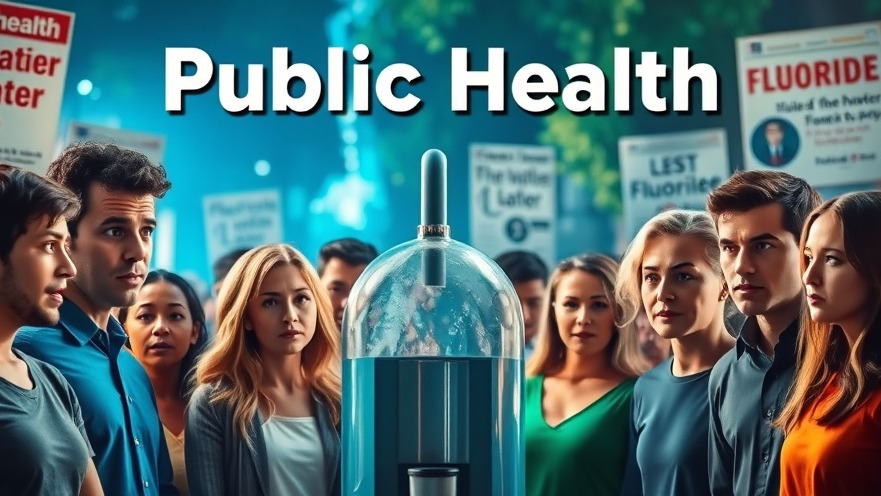
Unraveling the Controversy Surrounding Fluoride
The recent steps taken by federal officials toward eliminating community water fluoridation have sparked considerable debate across the health and dental communities. In April, the Environmental Protection Agency (EPA) initiated an expedition to reassess fluoride's health impacts, a move that many groups, including the American Fluoridation Society (AFS), believe is fundamentally misguided.
Historical Context of Fluoridation in America
Fluoride has been a staple in public health policy in the United States since the 1940s, hailed for its effectiveness in preventing dental cavities. Schools, local governments, and health organizations rallied around the addition of fluoride to community water supplies. Historical evidence has supported the practice, linking fluoridated water to oral health improvements. However, recent shifts in policy reflect growing skepticism toward its safety and efficacy.
The Rise of New Concerns: What Prompted This Review?
The push from federal authorities to reconsider fluoride usage is largely influenced by emerging studies highlighting potential health risks. HHS Secretary Robert F. Kennedy Jr. suggested that the Centers for Disease Control and Prevention (CDC) should stop recommending fluoride, reflecting an emerging paradigm shift in public health discourse. Critics argue these changes are based on misinterpretations of scientific evidence rather than comprehensive analysis.
A Closer Look At The National Toxicology Program's Findings
One of the cornerstone reports fueling the scrutiny of fluoride is from the National Toxicology Program (NTP), which reviewed 74 studies about fluoride's effects. Despite the AFS’s assertion that 70% of these reports were rated low quality, they still underscore that no significant link has been established between fluoride levels in U.S. water supplies and lowered IQ scores. This controversial report suggests a need for a careful reassessment of fluoride's benefits versus its risks.
Divided Opinions in the Dental Community
Practitioners like Dr. Emily Johnson are left navigating these complex waters. As a periodontal expert, she emphasizes the importance of upholding evidence-based practices in her community. “The benefits of fluoride are well-documented,” she states. “I support further research, but I also worry that moves away from fluoridation could impact public health negatively.” Her sentiments resonate with many who believe emphasis should remain on educating the public about fluoride's benefits rather than scrapping widely accepted practices.
Counterarguments and Diverse Perspectives
Opposition to fluoride is not without merit, and those in favor of reducing its levels argue that there is a growing body of research raising valid health concerns. Opponents cite potential issues with gut health and a broader array of systemic effects that could arise from excessive fluoride exposure. While the microbiologists have dismissed some of these claims, the discussions bring up important questions about continual health assessments and adjustments to public health responsibilities.
Actionable Insights for Dental Practices
For dentists like Johnson, the ongoing discourse creates an imperative to communicate effectively with patients about the fluoride debate. Utilizing educational materials that explain the importance of fluoride while also addressing concerns transparently can foster greater trust and informed consent in treatment decisions. In a landscape where misinformation can lead to panic, serving as a trusted source of knowledge is crucial.
Future Predictions and Opportunities for Ongoing Research
As the debate continues, the implications for future oral health policies are profound. It is anticipated that further longitudinal studies may help reconcile diverging views. This research could stimulate a potential revision of fluoride levels or even the introduction of alternative measures to ensure public health security. For now, the importance of establishing a reliable body of research cannot be understated.
Conclusion: The Path Forward for Public Health
As the federal government reassesses fluoride use, dental professionals and public health officials must bridge the gap in understanding. Promoting open dialogues about fluoride's benefits and risks while staying committed to community health remains vital. As stakeholders in this discussion, practitioners like Dr. Emily Johnson have a role in shaping policy by advocating for well-informed decisions rooted in solid scientific evidence.
 Add Row
Add Row  Add
Add 




Write A Comment